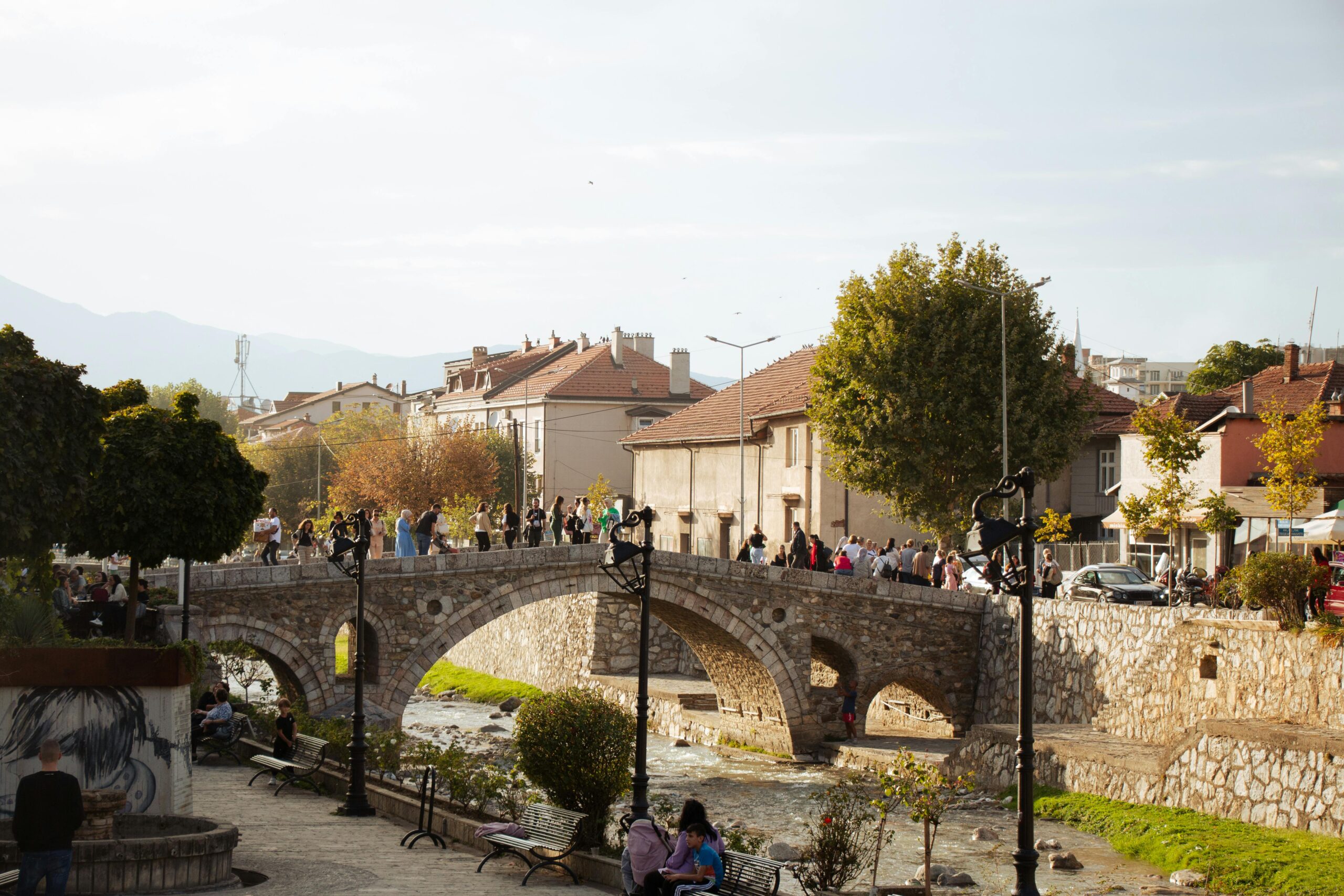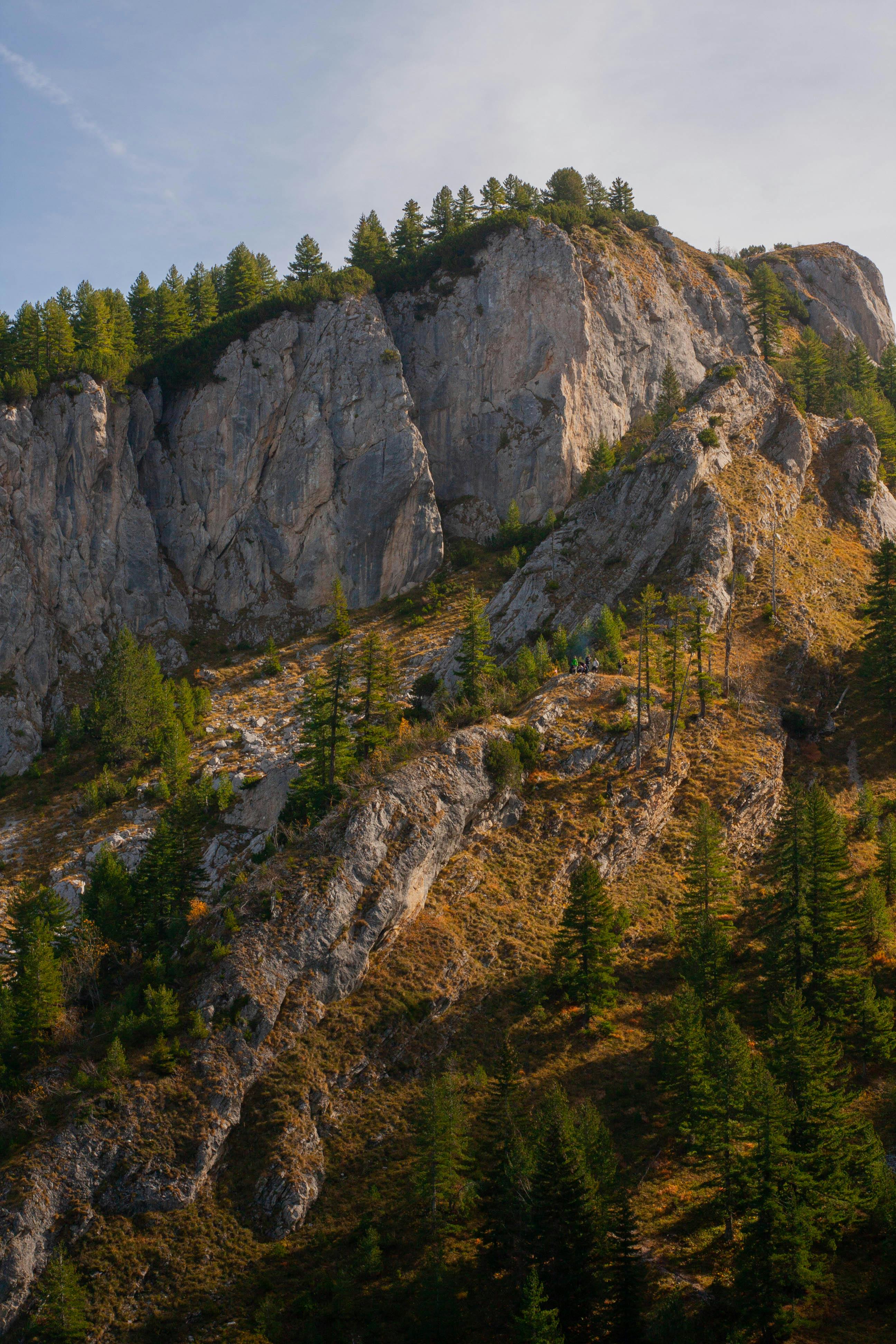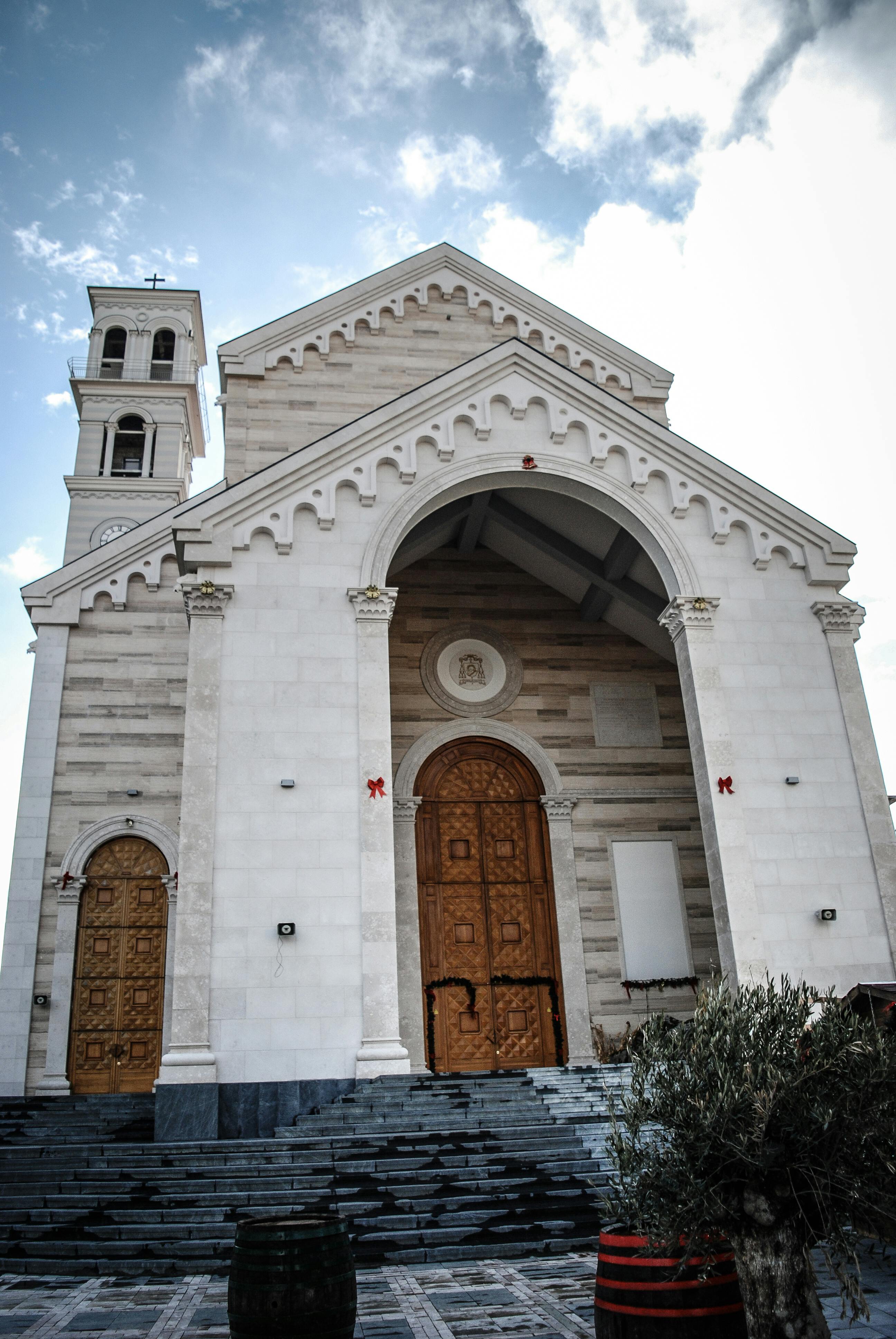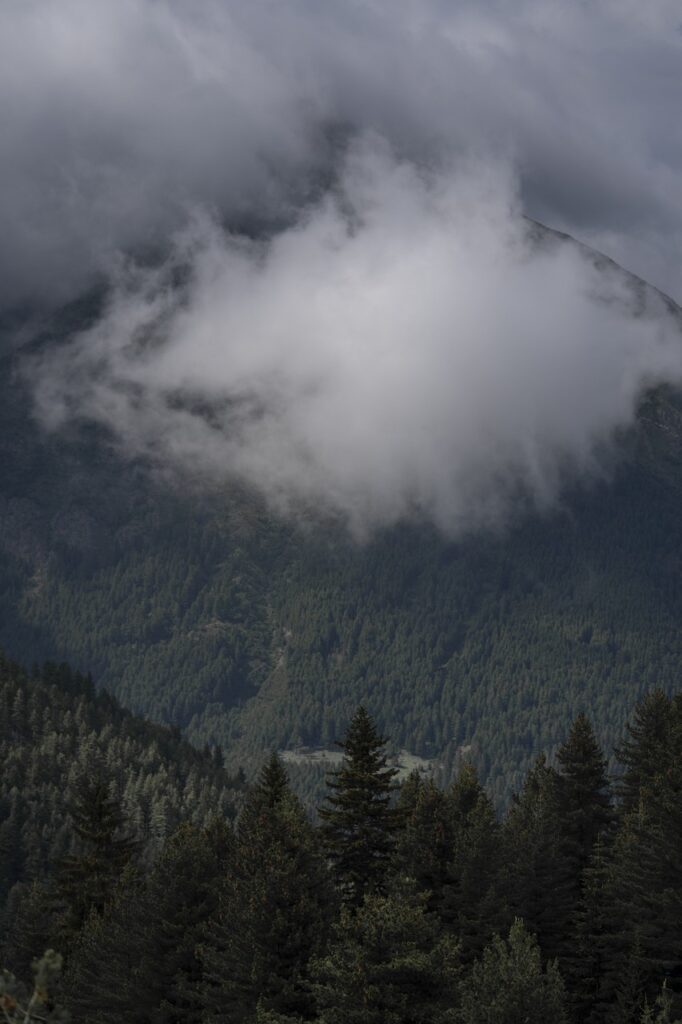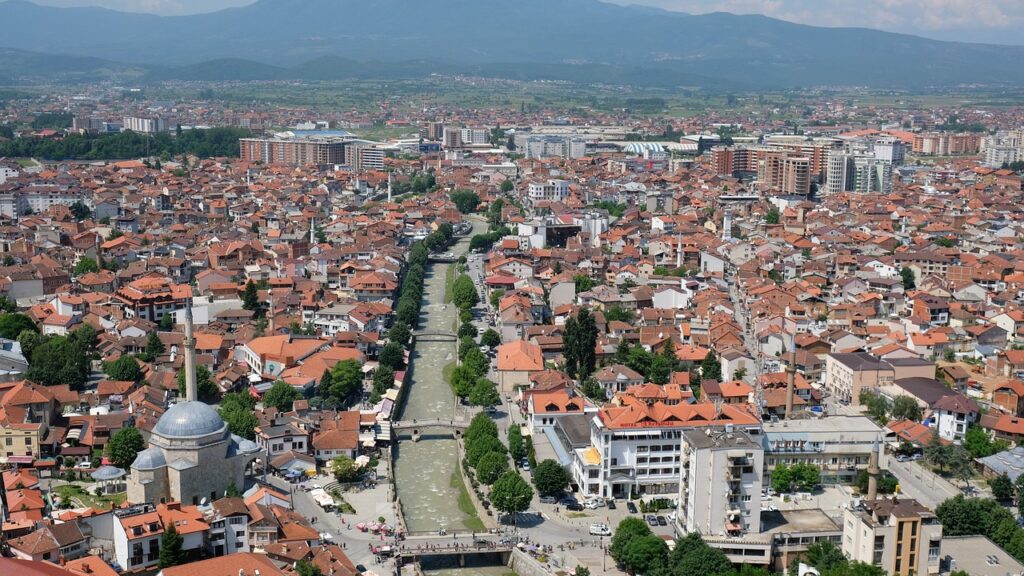Nestled in the heart of the Balkans, Kosovo calls for adventurous travelers with its rich history, breathtaking landscapes, and warm hospitality. For every broke backpacker looking to venture off the beaten path, Kosovo will give way to unforgettable encounters: a heady mix of vivid culture, stunning mountains, and indomitable spirits.
From Pristina’s busy streets down to Prizren’s ancient architecture, Kosovo is one of those places that can unfold its charm at very cheap rates. Visits to medieval monasteries, breathtaking hiking trails, and immersion into the local traditions are all part of the fare.
With Kosovo’s low-cost accommodations, yummy street foods, and very friendly locals, it might well be the perfect destination for a budget traveler. Take part in this cultural plunge and let Kosovo reveal its secrets to you on the beauty of traveling on a broke budget.
Get ready for the most thrilling exploration in Europe’s newest country where east meets west, tradition meets modernity, and vice versa. Kosovo awaits!
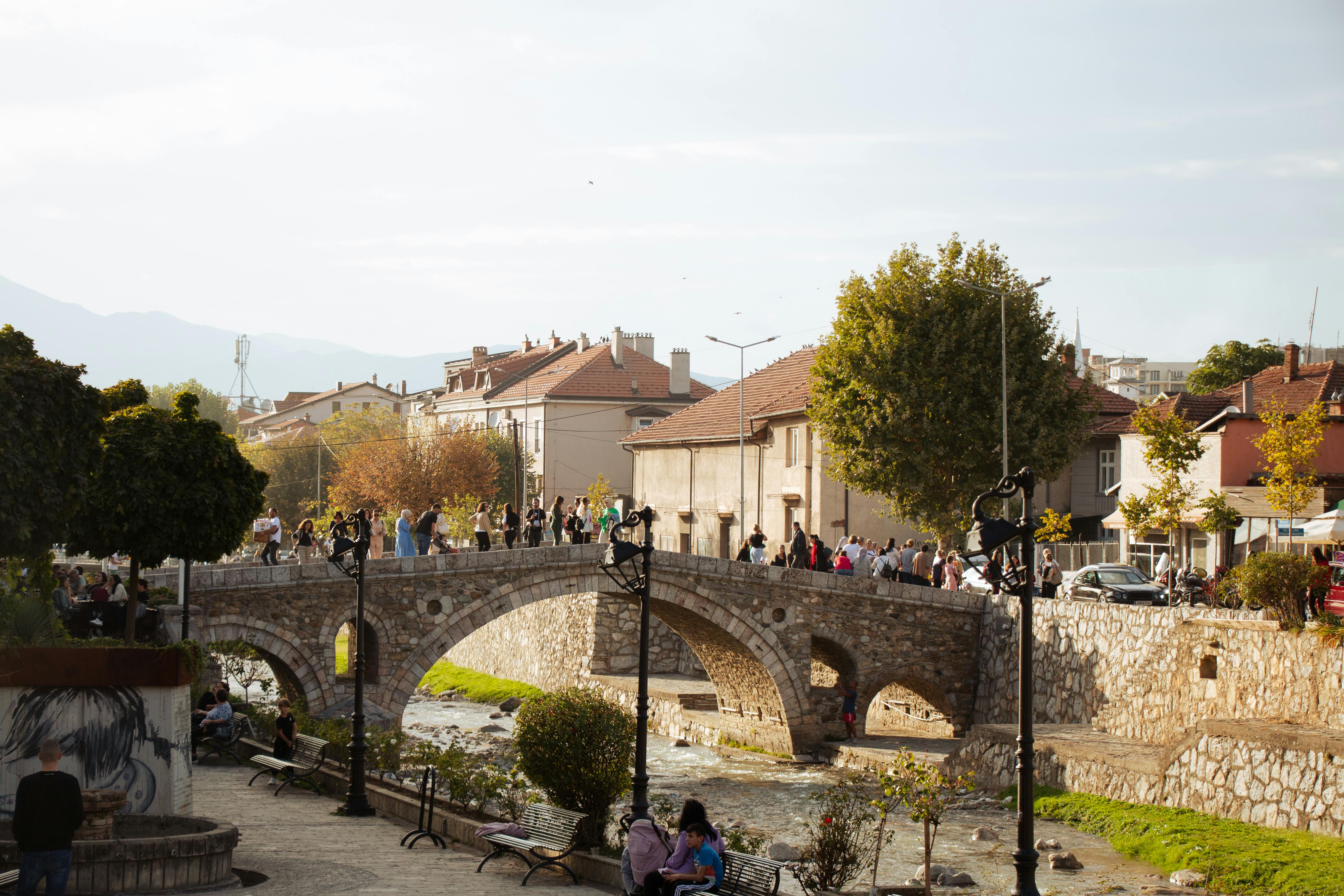
How to get there:
Bus
- Frequency: Regular services from Belgrade, Niš and Užice
- Duration: 4-6 hours (Belgrade to Pristina)
- Price: $10-$20
- Operators: Lasta, FlixBus, Niš-Ekspres
Train
- Frequency: Limited services from Belgrade
- Duration: 6-8 hours
- Price: $10-$30
- Operator: Serbian Railways
From Macedonia (North Macedonia)
Bus
- Frequency: Frequent services from Skopje
- Duration: 2-3 hours
- Price: $5-$15
- Operators: FlixBus, Euro Bus
Taxi
- Duration: 1.5 hours
- Price: $20-$30
Bus
- Frequency: Regular services from Tirana
- Duration: 4-5 hours
- Price: $10-$25
- Operators: FlixBus, Euro Bus
Taxi
- Duration: 3 hours
- Price: $30-$40
Bus
- Frequency: Limited services from Podgorica
- Duration: 5-6 hours
- Price: $15-$30
- Operators: FlixBus, Montenegro Bus
Taxi
- Duration: 4 hours
- Price: $40-$50
Border Crossings
Montenegro-Kosovo: Rožaje, Čakor
Serbia-Kosovo: Merdare, Jarinje, Gazivoda
Macedonia-Kosovo: Blace, Hani i Elezit
Albania-Kosovo: Morinë, Vërmicë
WHEN TO GO:
Off-Season (October to March)
- Pros:
- Lowest prices for accommodations (up to 50% off) and tours
- Fewer tourists, more authentic experiences with locals
- Skiing and snowboarding opportunities in the mountains
- Cons:
- Some attractions and businesses may be closed or operate on reduced hours
- Cold weather, especially in the mountains (average temperature: 2°C/36°F)
- Some roads may be closed due to snow
Shoulder Season (April to June and September)
- Pros:
- Mild weather, perfect for hiking and outdoor activities (average temperature: 15°C/59°F)
- Prices are lower than peak season, but still affordable
- Fewer tourists than peak season, but still a lively atmosphere
- Festivals like the Prizren Film Festival and the Kosovo Wine Festival
- Cons:
- Some attractions may still be closed or operate on reduced hours
- Occasional rain showers
Peak Season (July to August)
- Pros:
- Warm weather, perfect for outdoor activities (average temperature: 25°C/77°F)
- Most attractions and businesses are open
- Festivals like the Kosovo Summer Festival and the Jazz Festival
- Cons:
- Higher prices for accommodations and tours
- More tourists, less authentic experiences
- Can be very hot, especially in the cities
BEST ITINERARIES:
1-Week Itinerary:
- Day 1-2: Pristina (stay in a hostel, explore the city, and visit the Kosovo Museum – free admission)
- Day 3-4: Prizren (take a bus for €2, stay in a hostel, and explore the historic old town – free admission)
- Day 5: Peja (take a bus for €3, visit the medieval monastery of Visoki Dečani – free admission, and hike in the Accursed Mountains – free)
- Day 6-7: Lake Lipjan (camp for free, enjoy the lake, and relax)
2-Week Itinerary:
- Day 1-4: Pristina and Prizren (same as the 1-week itinerary)
- Day 5-7: Peja and the Accursed Mountains (same as the 1-week itinerary)
- Day 8-10: Gjakova (take a bus for €3, stay in a hostel, and explore the historic old town – free admission)
- Day 11-14: Return to Pristina, explore the city’s nightlife and cultural events (free admission)
1-Month Itinerary:
- Week 1: Pristina, Prizren, and Peja (same as the 2-week itinerary)
- Week 2: Gjakova, Junik, and the Accursed Mountains (hike, camp, and explore the region’s natural beauty – free admission)
- Week 3: Mitrovica, Vučitrn, and the medieval monastery of Gračanica (free admission)
- Week 4: Return to Pristina, explore the city’s cultural events, and take day trips to nearby attractions (free admission)
TRANSPORTATION:
Buses
Buses are the most popular mode of public transportation in Kosovo, connecting major cities and towns. You can find bus stations in the center of most cities, and tickets can be purchased on board or at the station. Prices are very reasonable, with a typical fare ranging from 1-3 euros (approximately $1.10-$3.30 USD).
FlixBus, a popular budget-friendly bus service, operates in Kosovo, connecting major cities like Pristina, Prizren, and Peja. You can book tickets online in advance, and prices start from around 5 euros ($5.50 USD).
Taxis
Taxis are widely available in Kosovo, but be sure to negotiate the price before you start your journey. A typical fare within the city center should cost around 3-5 euros ($3.30-$5.50 USD).
Minivans
Minivans, also known as “furgons,” operate on a shared basis, connecting cities and towns. They may not be as comfortable as buses, but they’re a great way to meet locals and get a feel for the culture. Prices are similar to buses, ranging from 1-3 euros ($1.10-$3.30 USD).
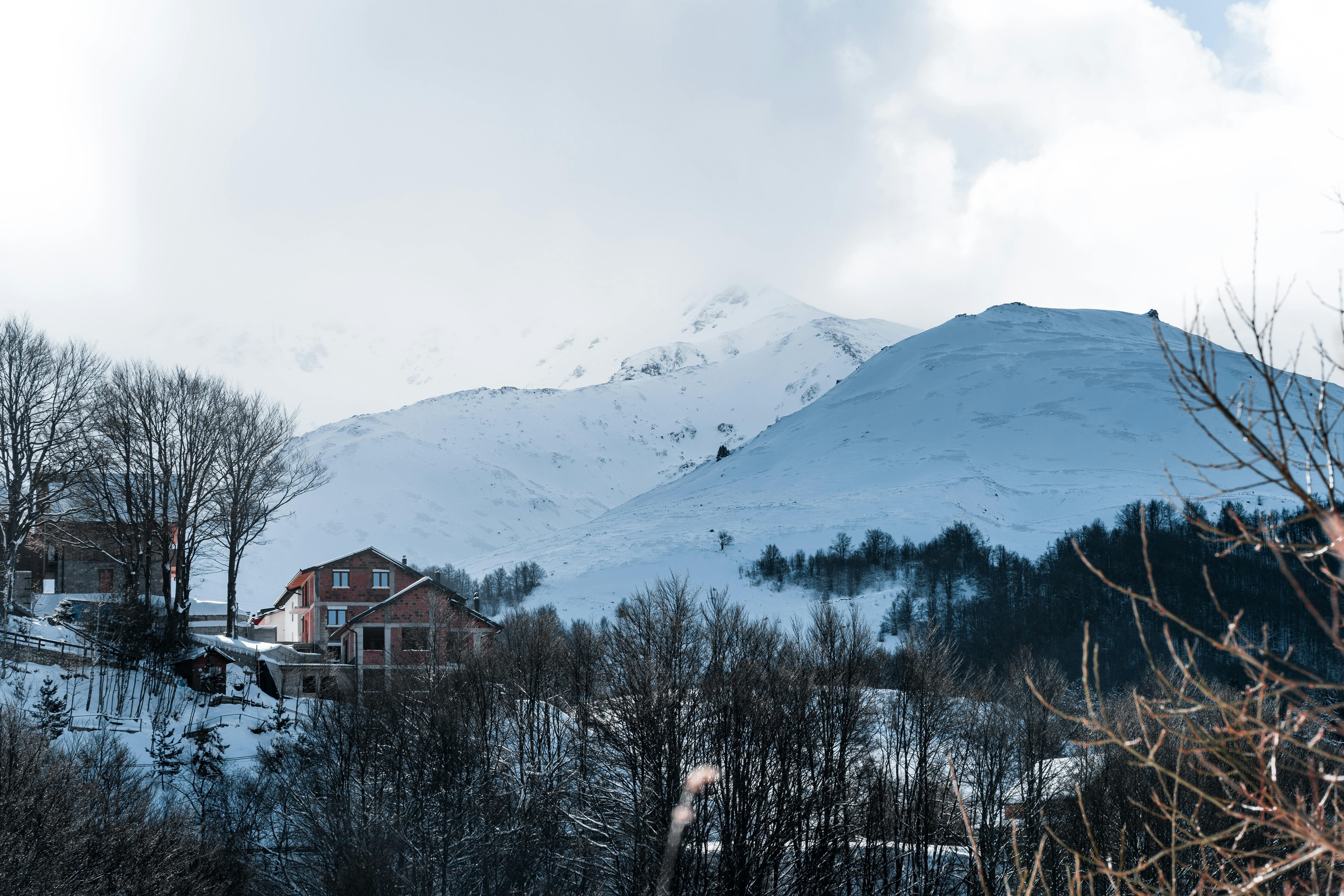
Top things to do:
Pristina
- Explore National Library and Kosovo Museum (free)
- Visit Imperial Mosque and Clock Tower (free)
- Wander through Old Town (free)
- Hike to Germia Park (free)
- Enjoy traditional cuisine at local eateries ($5-$10)
- Visit Kalaja Fortress ($5)
- Explore Sultan Fatih Mosque ($2)
- Discover ancient ruins of Ulpiana ($5)
- Visit Pristina Bazaar (free)
- Enjoy coffee at Café Rinia ($2-$5)
Prizren
- Explore ancient fortress and castle (free)
- Visit Sinan Pasha Mosque and Old Stone Bridge (free)
- Wander through historic Old Town (free)
- Enjoy traditional Albanian coffee ($2-$5)
- Hike to Prizren Castle ($5-$10)
- Visit Church of Our Lady of Ljeviš ($2)
- Explore Prizren Bazaar (free)
- Discover medieval Monastery of the Holy Archangels ($5)
- Visit Prizren Museum ($2-$5)
- Enjoy traditional dinner at Restaurant “Te Shadërvan” ($10-$20)
Peja
- Explore Patriarchate of Peć monastery (free)
- Visit Peja Old Town and Bazaar (free)
- Hike to Rugova Mountains (free)
- Enjoy traditional Kosovo cuisine ($5-$10)
- Visit Peja Ethnological Museum ($2-$5)
- Explore Peja Castle ($5)
- Visit Radavc Cave ($5-$10)
- Discover ancient ruins of Vinja e Poshtme ($5)
- Visit Peja’s Old Bazaar (free)
- Enjoy coffee at Café Kulla ($2-$5)
Gjakova
- Explore Hadum Mosque and Old Bazaar (free)
- Visit Gjakova Ethnological Museum ($2-$5)
- Wander through historic Old Town (free)
- Enjoy traditional coffee ($2-$5)
- Hike to nearby mountains (free)
- Visit Çabrat Mosque ($2)
- Explore Gjakova’s old houses (free)
- Discover ancient ruins of Illyrian City ($5)
- Visit Gjakova’s City Park (free)
- Enjoy traditional dinner at Restaurant “Te Çarshia” ($10-$20)
Mitrovica
- Explore Mitrovica Fortress (free)
- Visit Ibar River and Bridge (free)
- Wander through Old Town (free)
- Enjoy traditional Serbian cuisine ($5-$10)
- Visit Mitrovica Museum ($2-$5)
- Explore Bosnian Mahalla ($2)
- Visit Saint Demetrius Church ($2)
- Discover ancient ruins of Trepça ($5)
- Visit Mitrovica’s City Park (free)
- Enjoy coffee at Café “Te Mitrovica” ($2-$5)
Other Destinations
- Ulpiana ancient ruins (free)
- Marble Cave ($5-$10)
- Brezovica ski resort ($10-$20)
- Radavc Cave ($5-$10)
- Mirusha Waterfalls (free)
- Gazivoda Lake ($5)
- Deçan Monastery ($5)
- Gračanica Monastery ($5)
- Novo Brdo Fortress ($5)
- Kamenica Town ($2)
- Viti Lake ($5)
- Badovc Lake ($5)
- Prevalac Fortress ($5)
- Štimlje Town ($2)
- Kaçanik Town ($2)
Food:
Kosovo cuisine is a rich tapestry of flavors, with influences from the Mediterranean, Balkan, and Middle Eastern cuisines. Its strategic position has created a uniqueness in the culinary traditions of its people because of such a complex history and cultural diversity.
Traditional Kosovan cuisine is wholesome and full of flavors, as most local meats, fresh vegetables, and aromatic spices are in abundance. There are lots of ćevapi-minced meat sausages-mostly served with crusty bread and onions. Then there is pljeskavica, a succulent burger-like patty, also one of the favorite things eaten inside busy cafes and markets.
Indeed, fresh vegetables and fruits overflow the Kosovo market to show how rich the Kosovar soil is. The locals proudly show off the juiciest tomatoes to the crunchiest cucumber. During summer, indeed, gardens are full of the juiciest grapes, figs, and pomegranates which explode in a person’s mouth or in jam.
Not less impressive is the Kosovo dairy scene, dominated by creamy cheeses and yogurts on every breakfast table. Ajvar, or roasted red pepper sauce, goes well with bread and cheese to round off a satisfying start of the day.
Bread plays an important role in Kosovo’s food life. Crusty somun, fluffy pitulici are baked and often served with cheese, meat, or vegetables. A nice smell of freshly baked bread spreads through streets and homes.
Coffee culture permeates Kosovo’s social fabric. Strong Turkish and sweet Albanian coffee is always present in every café and house to keep the warmth and conversation going. Traditional sweets like baklava, tulumba, and kremšnita satiate the sweet tooth. Fruit preserves and honey from Kosovo show the rich biodiversity of the country and accentuate the beauty of nature in the country.
From traditional spinach to delicious cakes, regional specialties are plentiful and reflect the rich cultural heritage of Kosovo. The qofte originating from Pristina are famous, filled with spices and herbs in meatballs. One of the most valued kinds of cheese is kaçkavall originating from Peja, highly valued for its rich flavor.
Food is a very important component of Kosovar hospitality. The guests are warmly welcomed with traditional dishes and drinks that show the well-known warmth of this country.
The combination of traditional and modern makes up the gastronomic scene of Kosovo: classic flavors blend with international twists in modern restaurants, catering to even the most adventurous of palates.
For the poor backpackers, Kosovo is a haven of foodie wonders that come inexpensively. From street food to fresh food markets and local restaurants, it is ready for exploration.
Kosovo’s food scene is full of flavor, authentic, steeped in traditions, with people full of warm hearts. Every local market will amaze you with its hidden treasures, the taste of every bit leaving you wanting more.
Everything about Kosovo’s cuisine speaks to resilience, diversity, and community. Every bit has a memory, takes you back to history, to cultural exchange, and through love.
Savour the flavours of Kosovo on a full-bodied gastronomic journey with generous helpings of warmth and hospitality.
Culture:
Kosovars culture is embroidered with a rich tapestry of tradition handed down through so many centuries, heavily influenced by Mediterranean and Balkan cultures, bolstered by an indomitable national spirit. The complex history of invasions has woven a unique blend of Islamic, Orthodox, and Catholic heritage into its folds and thence encouraged diversity and richness.
ospitality, respect, and strong family ties dominate Kosovan Albanian traditional culture. As for hospitality, their welcoming of guests by offering them such things as coffee or rakia is widely upheld as one of the finest kept traditions. Older ones received great respect because they represented wisdom and ancestral heritage.
This package includes folk music and dance, both a reflection of Kosovo’s artistic way of expression. The instruments the lahuta and sharki permit an expressiveness that often results in emotional responses, just like traditional dancing does: valle and shota evoke images of ancient rituals.
Folklore goes deep into Kosovo’s national consciousness, with epic poems and legends describing heroic deeds. Skanderbeg and Mother Teresa-a son of the land indeed, an icon of humanity-is a manifestation of courage, compassion, and will.
Islamic traditions are extremely influential in Kosovo, especially its architecture and art. The Imperial Mosque in Pristina testifies to this heritage, one among many mosques from the Ottoman era.
Orthodox Christianity seals its stamp through beautiful monasteries such as Visoki Dečani and Gračanica. These sacred places are manifestations of Byzantine skill and spiritual commitment.
Contemporary art, literature, and music show Kosovo’s cultural rebirth through identity, freedom, and social justice topics.
Traditional costumes have regional variations and are adorned with extensive embroideries and designs, signifying the wearer’s village or community. The national traditional Albanian costume, xhubleta, is a source of national pride for the Albanians.
Cuisine also plays an important part in this, with Mediterranean lightness combined with Balkan heaviness. Food items such as ćevapi, pljeskavica, and ajvar create feelings of warmth and hospitality.
Cultural festivals in Kosovo, a display of unity and heritage, are part of Kosovo’s calendar. The Pristina International Film Festival forwarded cinematic exchange between Kosovo and the rest of the world.
Other essential attribute is the language; Albanian and Serbian are the official languages. In modern times, English is being spoken by increasing numbers of people, especially young people.
Education is viewed as significantly important; a massive emphasis is placed on literacy, critical thinking, and cultural awareness.
Among the strongest points of social development in Kosovo, family stands out; it depicts small and closely-knit communities.
Traditional respect protects the modernization processes so that the Kosovo spirit would be preserved accordingly.
The very hard history of this state contributed to the resilience and adaptability being formed. People of Kosovo learned to cherish their traditions and accept changes.
Handicrafts, ranging from carpentry to weaving, have kept many of the old traditions alive.
The dramatic natural splendor of Kosovo stirs artistic creation-from folk songs to the latest painting.
Social happenings, ranging from weddings and holidays, show vibrancy in people’s traditions.
Kosovo’s cultural landscape has been very dynamic, changing further with each succeeding generation.
There is more to Kosovo’s culture than initially meets the eye, for it holds hidden treasures of warm hospitality and timelessness of heritage.
Now is a great time to experience Kosovo’s thrilling culture, replete with rich traditions, expressive arts, and friendly meetings!
Accommodations:
For the bold voyager, Kosovo’s hostel scene allows one to be inducted into the local spirit, creating memories that will not easily be washed away.
To experience hostel culture as it truly is in Kosovo, forget the guidebooks and try to resist indulging in upmarket establishments. Instead, go in search of the most inexpensive-the often family-run guesthouses, or kooky hostels tucked away down unassuming corners. It is here, in these modest dens, that true Kosovo awaits.
Booking the cheapest hostels often leads to surprising meetings. You may often share stories with other travelers over homemade rakia or be invited to join impromptu traditional dance sessions. Kosovo’s warm hospitality ensures that strangers become fast friends. It is in these close settings that travelers share tales of adventure that create lifelong connections.
Budget hostels are often the real life of the community, a peek into the lives of locals. Dynamic discussions, home-baking, or impromptu jamming-the Kosovan cultural tapestry comes into being piece by piece through these organic experiences. As you fall into rhythm with the pace at the hostels, the lines between traveler and local begin to blur, and you start to feel like you belong.
The low-budget hostels of Kosovo amaze with their uniqueness, reflecting the resiliency and resourcefulness that marks the nation. Colorful murals brighten up the walls; makeshift furniture retrofits old buildings, and every single hostel has its story to tell of resourcefulness and determination. Every nook and corner may have some hidden surprise for you, making a stay in every hostel equally memorable. You can, at times, get a hidden garden or a makeshift library, or sometimes even a rooftop with city views.
Basic, yet safe and communal: budget hostels in Kosovo house travelers within a supportive network of advice-sharing and back-watching. Owners of the tiny hostels can be outstanding storytellers, passionately explaining the complex history of Kosovo and putting into context one’s travels.
As you wander through Kosovo’s hostels, a different cast of characters greets you at every turn: adventurous backpackers and curious locals, all adding their story to the narrative. These encounters humanize the country, transforming Kosovo from a destination into a living, breathing experience.
Kosovo is a treasure trove of a hostel scene for the super broke backpacker just looking for raw adventure. Travelers unlock experiences they’ll never forget because of embracing the unknown to always be on the lookout for cheap. Come with an open heart and mind, ready to plunge into the vibrant culture which Kosovo has in store, and make lifetime connections along the way.
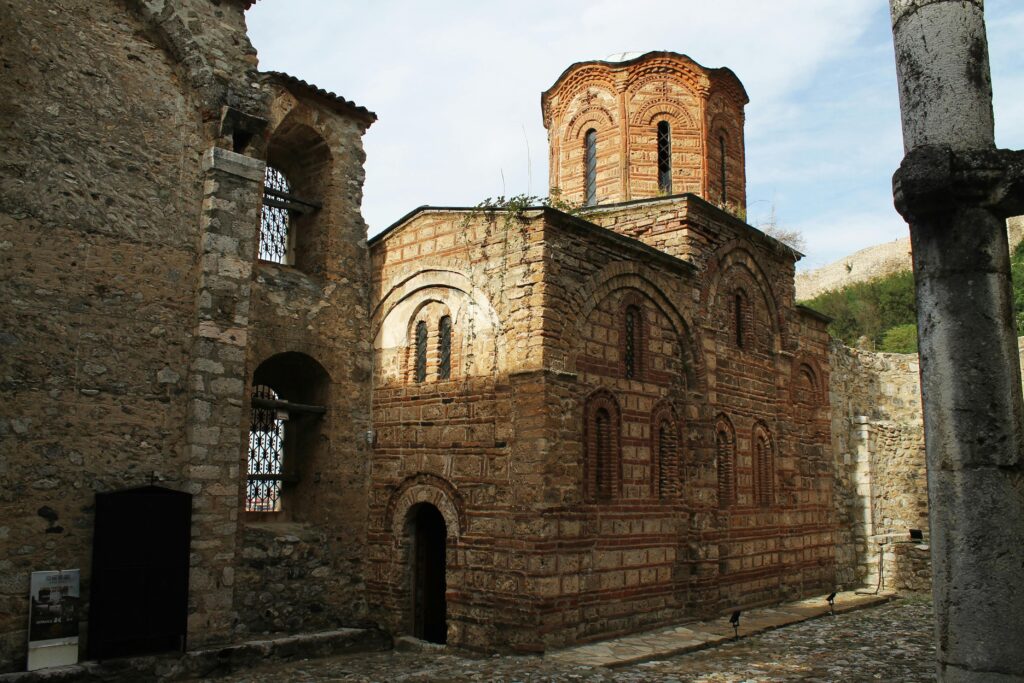
Nightlife:
From the quirky to the bizarre, Kosovo’s nightlife is certain to mesmerize with just the right mix of time-honored tradition and modern élan throughout the country. As night descends, streets turn into dynamic gathering hotspots full of laughter, music, and hospitality. Anticipation hangs in the air, luring travelers into unforgettable worlds.
When the sun goes down in these three important Kosovo cities-Pristina, Prizren, and Peja-the fun begins. The bars, clubs, and cafes spill out onto the sidewalks and into highly socialized hotspots of connection and joy. Total strangers become great friends over shots of rakia or coffee, with interests in music and culture binding them together.
From underground electronic dens to folk bars bursting with life, Kosovo’s nightlife has something for everyone. It could be a case of live music-spontaneous jam sessions, traditional ensembles, or DJ performances-heating up the floors and making time stand still. Impromptu gatherings spill out into hidden courtyards, turning any night into a special memory.
Warm summer nights indeed mean freedom, with outdoor concerts and festivals taking center stage. Mesmerizing evenings on the sides of mountains or shores of lakes under starry skies give way to weary revelers watching sunrises over serene landscapes, basking in post-party serenity.
In wintertime, the Kosovo nightlife moves indoors into cozy taverns, jazz clubs, and intimate wine bars. Crackling fireplaces cast warmth on lively debates, board games, or impromptu sing-alongs. It is such snug hideaways that grow the friendships forged in the cold.
The Kosovo nightlife can be tough, passionate, and friendly, just like the nation itself. At the center of ancient architecture, modern flair conceals hidden treasures of night owls, creating experiences that one will never forget. The Kosovo nightlife scene caters to everything from the wildest adventures to casual reunions.
With Kosovo’s vibrant streets beginning to fill with morning light, the owls of the night become enticed into their beds, dreaming of their next escapade that night. The infectious energy of the country somehow ensures that travelers return for more, enticed by memories of unforgettable nights spent amidst Kosovo’s captivating nightlife.
The Kosovan urban landscape represents contrasts, from Ottoman and medieval influences to the latest street art. At night, this eclectic backdrop springs to life with neon lights and candlelit cafes. Every alley, every courtyard holds a secret that just waits to be dug out by fearless explorers.
Equally eclectic is the Kosovo nightlife, from folk and traditional melodies to truly avant-garde electronic beats. Every district has its unique identity sonically, cultivated by local and DIY artists and their biggest fans. From Kosovarian raves to intimate nights of acoustic music, Kosovo doesn’t miss any beat that touches a different kind of musical soul.
In addition to the bars and clubs, the cultural institutions of Kosovo join in the nighttime party: museums host evening exhibitions, and theaters project captivating performances under the stars. These events display the rich heritage of Kosovo by weaving history and art into the nightlife of Kosovo.
Here, in the nighttime world, are found the hidden communities and underground movements. Creative circles, from alternative fashion to street art collectives, blossom at night, challenging the norms and creating ingenuity.
But the nights of Kosovo are nights when barriers break down in social order, and strangers become one with confidants. Locals and travelers unite over shared passions and forge a common bond beyond borders and cultures. Kosovo Nightlife promises any encounter amidst lost conversation or in the swept momentum of a crowd.
Nightlife in Kosovo is an odyssey of discovery, with surprises around every corner. Come and let the rhythm take control; this addictive energy will guide you through a journey unlike any other, full of music, connection, and adventure.
Backpacking Kosovo costs:
Daily Budget
Accommodation
$5-10 per night (hostel dorms or budget guesthouses)
Food
$3-5 per meal (traditional dishes like flia, qofte, or burek)
$1-2 (street food, bakeries, or markets)
$10-15 total
Transportation
$1-2 (public buses)
$5-10 (taxi rides)
Attractions
$2-5 (museums, historical sites)
$0-1 (exploring markets, parks)
Miscellaneous
$5-10 (souvenirs, snacks, unexpected expenses)
Total Daily Budget
$23-42
Weekly Budget
Accommodation
$35-70 (avg. $5-10 per night)
Food
$70-105 (avg. $10-15 per day)
Transportation
$7-14 (avg. $1-2 per ride)
Attractions
$14-35 (avg. $2-5 per attraction)
Miscellaneous
$35-70 (avg. $5-10 per day)
Total Weekly Budget
$161-294
Conclusion:
This small, landlocked country will leave scars on your travels as you conclude your Kosovar Broke Backpacking Adventure, with its unbreakable spirit and warm hospitality. Though Kosovo has passed through the fire and flames of war, its culture sparkles, its landscapes take your breath away, and the people are warm and generous, inviting exploration.
Around every corner, behind every secret courtyard, in every casual conversation, Kosovo discloses its real face: uncooked, rough, and beautiful. Surrender to the unfamiliar, succumb to the rhythm, and you’ll find discoveries of hidden treasures tucked away in this Balkan beauty.
Broke backpacking Kosovo is not only pinching pennies; it is diving headfirst into the local life, making indelible connections, and finding a nation that winds down unbridled energy. As you leave, memories of the mesmerizing sunsets of Kosovo, its spirited nightlife, and a large dose of genuine warmth stick with you, beckoning return.
Pristine Kosovo, therefore, promises to be an unforgettable odyssey because of its charming blend of tradition and modernity, engraving itself at the core of your travel stories. Take with you some life lessons from the capricious charm of Kosovo: openness, resilience, the beauty of the unknown, inspiring further adventures, fuelling wanderlust in more ways than one.
